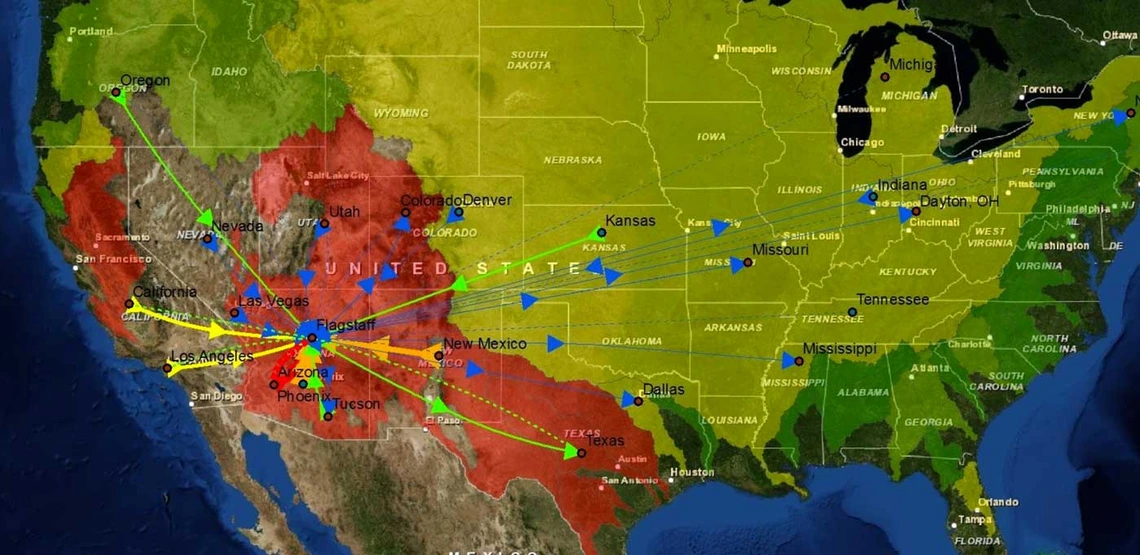
When
Where
Speaker(s)
Presentation: Water Resource Impacts Embedded in the Western U.S. Electrical Energy Trade; Current Patterns and Adaptation to Future Drought (and broader Embedded Resource Impact Accounting applications to U.S. urban and watershed systems)
Water resources are a key element in the global coupled natural-human (CNH) system, because they are tightly coupled with the world’s social, environmental and economic subsystems, and because water resources are under increasing pressure worldwide. A fundamental adaptive tool used especially by cities to overcome local water resource scarcity is the outsourcing of water resource impacts through substitutionary economic trade. This is generally understood as the indirect component of a water footprint, and as ‘virtual water’ trade.
Dr. Ruddell's presentation will explore generalized CNH methods, Embedded Resource Impact Accounting (ERA), to reveal the trade in water resource impacts embedded in electrical energy within the Western U.S. power grid, and the relationship of these impacts to the human economy’s structure. He will discuss how he utilized a general equilibrium economic trade model combined with drought and demand growth constraints to estimate the future status of this trade. Trade in embedded water resource impacts currently increases total water used for electricity production in the Western United States and shifts water use to more water-limited States. Extreme drought and large increases in electrical energy demand increase the need for embedded water resource impact trade, while motivating a shift to more water-efficient generation technologies and more water-abundant generating locations. Cities are the largest users of electrical energy, and in the 21st Century will outsource a larger fraction of their water resource impacts through trade. This trade exposes cities to risks associated with disruption of long-distance transmission and distant hydrological droughts.
Dr. Benjamin Ruddell’s professional experience is in the field of Science and Engineering research and education in a collaborative University setting. He has worked with a variety of federal, local, and private partners to accomplish cutting-edge projects. He is a scientist of complex systems (systems characterized by highly interconnected relationships). His professional goals are the advancement of the science of complex coupled natural-human (CNH) systems, especially in hydrology, climate, ecosystems, and in urban environments, and the development of excellence in STEM Education in a University setting. His B.S.E. degree in Engineering was completed in 2002 at Calvin College and his Ph.D. degree in Civil Engineering was completed in 2008 at the University of Illinois at Urbana-Champaign. He is an active member of the American Society of Civil Engineers (ASCE) and the American Geophysical Union (AGU).

